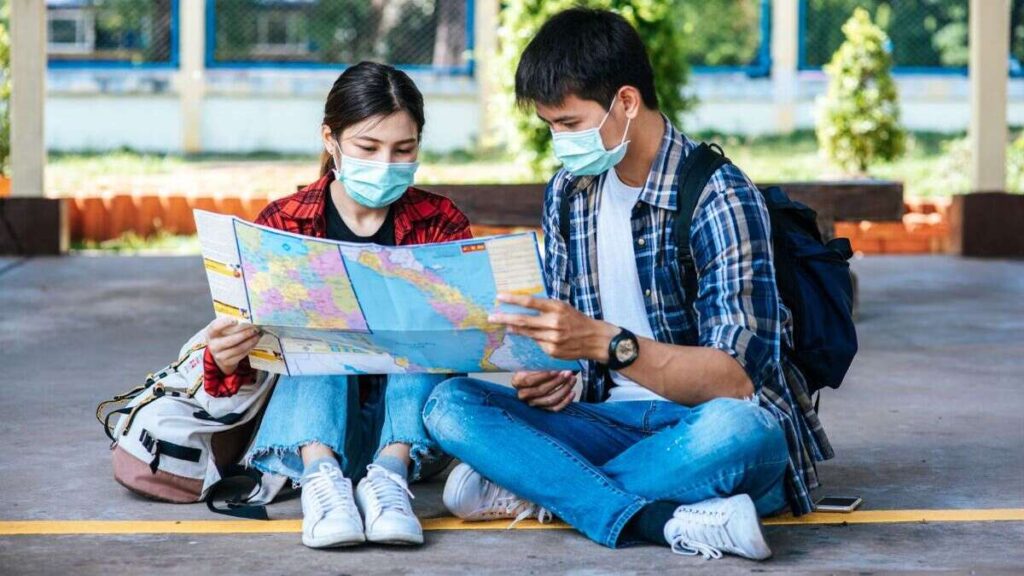Introduction
Educational travel for children is far more than simply visiting new places; it’s a powerful tool for shaping a child’s personal, academic, and social growth. By stepping beyond the confines of classrooms, children engage in hands-on learning that makes history, culture, and science come alive. It helps them develop critical life skills, such as adaptability, independence, and empathy while broadening their worldviews and sparking a lifelong curiosity.
- Introduction
- Enhances Learning Beyond the Classroom
- Builds Cultural Awareness and Sensitivity
- Boosts Confidence and Independence
- Sparks Lifelong Curiosity and Creativity
- Improves Academic Performance
- Strengthens Family Bonds
- Encourages a Love for Nature and Sustainability
- Teaches Teamwork and Social Skills
- Expands Language Skills
- Builds a Sense of Gratitude and Humility
- Practical Tips for Parents Planning Educational Travel
- Conclusion
Parents often question whether the time and cost of travel are worth it, but the unique experiences and profound lessons gained prove invaluable. This article explores ten transformative benefits of educational travel for children, revealing why every parent should seize the opportunity to enrich their child’s life through travel.
Enhances Learning Beyond the Classroom
While schools provide structured learning environments, educational travel for children introduces hands-on learning experiences that no textbook can replicate. Imagine your child visiting a historic castle in Europe instead of just reading about medieval history. Suddenly, dates and events come alive!
How It Works
- Immersive Learning: Children witness real-life applications of what they learn in class. For example, a trip to the Grand Canyon enhances their understanding of geology and natural sciences.
- Interactive Engagement: Museums, historical sites, and cultural hubs offer interactive exhibits that captivate young minds.
Real-Life Example
A friend of mine once took her 10-year-old son to Egypt. He returned brimming with excitement about pyramids and pharaohs—not because he had read about them in a book, but because he had seen them firsthand. Educational travel for children creates unforgettable moments.
Builds Cultural Awareness and Sensitivity
The world is a melting pot of diverse cultures, and exposing children to these cultures early fosters open-mindedness. Educational travel for children to appreciate other customs, traditions, and ways of life.
Why This Matters
- Broader Perspectives: Kids learn to respect differences, a crucial trait in today’s globalized world.
- Breaking Stereotypes: Firsthand exposure challenges preconceived notions and prejudices.
Activities That Promote Cultural Sensitivity
- Participate in local festivals or community events.
- Learn a few phrases in the local language during travel for children
Anecdote
One child learned about tea ceremonies on a family trip to Japan, leading to a newfound interest in Japanese culture. Small moments like this spark curiosity and empathy in young travelers.
Boosts Confidence and Independence
Traveling builds resilience and self-confidence, particularly when children are encouraged to leave their Comfort zones. It might be as simple as ordering food in a different language or navigating an airport.
Key Benefits
- Problem-Solving Skills: Kids learn to adapt to new environments and situations.
- Decision-Making Skills: From choosing activities to packing essentials, they take responsibility.
How Parents Can Help
- Let children pack their bags (with guidance).
- Please encourage them to ask questions and interact with locals.
Sparks Lifelong Curiosity and Creativity
Curiosity is the foundation of learning, and educational travel for children nurtures this trait. From exploring ancient ruins to observing wildlife in their natural habitat, the newness of travel environments stimulates creative thinking.
The Science Behind It
- New environments activate neural pathways, fostering creativity.
- Diverse experiences encourage kids to think beyond boundaries.
Creative Outcomes
Visiting an art gallery could inspire a budding artist, while a safari trip might ignite a passion for conservation. The possibilities are endless!
Improves Academic Performance
Research shows that students who travel perform better academically. The hands-on, experiential learning gained from educational travel for children directly complements traditional schooling.
Core Academic Benefits
- Retention: Experiences leave a lasting impression, making it easier to recall facts and concepts.
- Cross-Subject Learning: A single trip can teach history, geography, language, and math skills.
Example
A family trip to Italy, including stops at the Leaning Tower of Pisa and the Roman Colosseum, turned a mundane history lesson into a vibrant adventure. Months later, the child still excelled in his European history exam!
Strengthens Family Bonds
Educational travel for children creates lasting memories that strengthen family relationships. When families travel together, they share unique experiences that bring them closer. From conquering a hiking trail to navigating a bustling city market, these moments become cherished stories to recount for years.
How It Brings Families Together
- Quality Time: Away from the distractions of daily life, families can focus on each other.
- Shared Achievements: Accomplishing challenges like reaching the top of a mountain or solving travel hiccups fosters teamwork.
A Memorable Moment
One family I know traveled to Costa Rica and spent days exploring the rainforest. While ziplining through the jungle, the kids faced their fear of heights, cheered on by their parents. This shared victory became the highlight of their trip and a memory they revisit often.
Encourages a Love for Nature and Sustainability
Taking children into the natural world is one of the most effective ways to teach them about the importance of environmental conservation. From snorkeling in coral reefs to trekking in national parks, educational travel for children fosters an early appreciation for nature.
The Impact of Nature-Based Travel For Children
- Awareness: Kids learn about endangered species and ecosystems.
- Action: Seeing environmental issues firsthand encourages them to make eco-friendly choices.
Ideas for Eco-Friendly Trips
- Visit wildlife sanctuaries and learn about conservation efforts.
- Explore sustainable farms to understand organic agriculture.
A Real-World Example
A young girl who visited the Galápagos Islands was inspired to organize a school campaign to reduce single-use plastics. Travel doesn’t just educate—it empowers!
Teaches Teamwork and Social Skills
Travel for children often involves group activities, allowing children to build essential social skills. Whether they’re collaborating with siblings or making new friends during a guided tour, these interactions are invaluable for personal growth.
Benefits of Group Travel For Children
- Improved Communication: Kids learn to express themselves clearly.
- Collaboration: Group activities like treasure hunts or guided excursions teach teamwork.
How to Facilitate Interaction
- Enroll your child in travel programs or educational camps.
- Please encourage them to interact with local children or fellow travelers.
An Anecdote
During a school trip to Paris, one boy formed a lasting friendship with another student while working together to solve a scavenger hunt at the Louvre Museum. Such experiences highlight how travel nurtures interpersonal connections.
Expands Language Skills
Nothing boosts language learning like immersion. Traveling to a foreign country introduces children to new languages, providing a practical context to practice and improve their skills. Even a few days abroad can spark an interest in mastering a new tongue.
How Travel Supports Language Learning
- Real-Life Practice: Children pick up phrases by interacting with locals.
- Cultural Context: They understand how language ties to traditions and daily life.
Practical Tips
- Encourage your child to learn basic phrases before the trip.
- Use language-learning apps to make the process fun.
A Small Yet Powerful Story
A family visiting Mexico encouraged their kids to order food in Spanish. After returning home, the children’s excitement at being understood sparked an interest in learning Spanish.
Builds a Sense of Gratitude and Humility
When children experience life in different parts of the world, they become deeply grateful for what they have. Witnessing diverse lifestyles—sometimes underprivileged—broadens their perspective and fosters empathy.
What Kids Learn
- Appreciation: They recognize the privileges they enjoy.
- Humility: They understand that happiness isn’t tied to material wealth.
A Heartwarming Example
During a trip to Southeast Asia, a boy saw children happily playing with handmade toys. The experience made him appreciate his toys and motivated him to donate some to charity upon returning home.
Practical Tips for Parents Planning Educational Travel
- Research Destinations: Choose places with rich educational value, such as historical sites or natural wonders.
- Engage Kids in Planning: Involve them in choosing activities to spark their interest.
- Prepare Together: Read books or watch documentaries about the destination beforehand.
Pro Tip
Remember to balance education with fun. A well-rounded itinerary keeps kids engaged and excited about learning.
Conclusion
Educational travel for children is more than just an adventure—it’s a lifelong investment in their personal, academic, and emotional growth. Whether developing empathy, gaining new skills, or creating cherished memories, every trip leaves a lasting imprint on a child’s life. For parents, it’s an opportunity to nurture curiosity, resilience, and a global perspective in their little ones.
So, why wait? Start planning your next educational adventure and give your child the gift of travel—it’s a classroom without walls, where every moment is a lesson.


